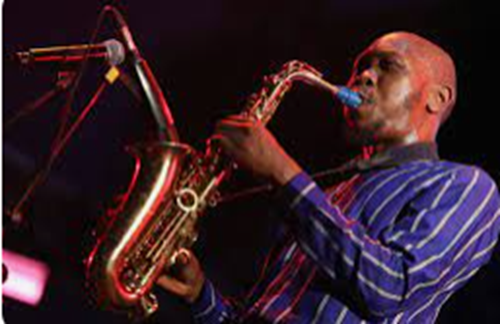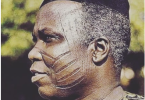One of the most defining aspects of Nigerian (and African) culture is music. The music space in Nigeria continues to evolve, as traditional rhythms are blended into Western music genres in exciting grand experiments. The results of these continuous musical experiments have been very impressive. We will go down memory lane to examine the evolution of Nigerian music through the decades, from colonial times.
We would see how music left the stables of traditional functional roles, to serve mainstream entertainment, political, religious, and motivational purposes over time.
Traditional Music: Pre-Colonial to Early Colonial Times
Traditionally, music was used to serve specific functions in Nigeria. Virtually every meaningful event that took place in traditional society was accompanied by matching songs. Songs were rendered to motivate groups of farmers and fishers (and other skilled workers) to keep working. Praise songs and musical history storytelling were rendered at social events such as birthdays, funerals, weddings, traditional festivals, and the like. Songs accompanied evening folktales told to children as well.
And with these songs came an array of indigenous musical instruments. All kinds of native drums, flutes, trumpets, xylophones, lyres, lutes, gongs, and the like, were put to work. Some notable ones include the Hausa long trumpet (Kaakaki), Yoruba drums (Gangan, Gudugudu, and Dundun); and flutes. These instruments ended up among the retinue of instruments that defined Juju, Fuji, and Highlife music genres in the decades that followed.
The 1920s: The Rise of Juju Music
Influenced by their exposure to Western music, the musicians of this era began to combine native instruments with brass and percussion instruments, along with Brazilian tunes. This produced the early version of Juju music, with leading exponents such as Tunde King. Within the next three decades, the electric guitar, accordion and synthesizers were introduced into Juju music – leading to the birth of electro Juju music. Foremost amongst the electro Juju crooners were King Sunny Ade and Ebenezer Obey (amongst others).
The 1950s: Highlife Rises to Prominence
From Ghana, the Highlife genre began to spread across West Africa. It was originally sung to narrate daily social struggles; and became a regular feature in nightclubs and social events. However, a Nigerian version of Highlife emerged, with a focus on feel-good music. Subsequently, clubs erupted with highlife performances from a mix of Ghanaian and Nigerian performers. The likes of Bobby Benson, Victor Olaiya, Osita Osadebe, Victor Uwaifo, Sunny Okosun, and Orlando Owoh flourished in this genre. It was kept alive till after the Nigerian Civil War. Strong elements of highlife can still be perceived in certain modern Nigerian Afrobeats songs.
1960s and 1970s: Jazz Took Its Place
By the time Fela Ransome-Kuti Quintet band began rocking Lagos in 1963, Jazz became more and more popular. Feal and his band featured regularly at the Cool Cats Inn on Monday nights. Over time, Fela changed his band’s name to Koola Lobitos; and his performances inspired other jazz artists (such as Art Alade). Additionally, the Extended Family Jazz Band of popular couple Frances and Tunde Kuboye also played regularly at the Jazz 38 club. But in Port Harcourt, prominent female jazz singer Maud Meyer elevated jazz to a favorite spot across Eastern Nigeria.
Over time, the Jazzville in Lagos became a hotbed for aspiring jazz artists, which included Bisade Ologunde (Lagbaja) and Funso Ogundipe (Ayetoro).
Afrobeat Began Its Revolution
From Koola Lobitos, Fela Kuti transformed his band into the Africa ‘70 band; and invented the unique Afrobeat music genre (along with Tony Allen). Afrobeat took strong elements of jazz and infused it with highlife and traditional African music. The world has not recovered from the strong influence of Afrobeat ever since then.
Even more important is the role of Afrobeat as a pan-African revolutionary song, which demanded for social and political change. Fela Kuti openly criticized Nigeria’s ruling government through his songs. He did live performances of unreleased songs at his music studio, the Kalakuta Republic; and his club the Afrikan Shrine. Several young artists and poets gathered there regularly, as Fela’s popularity continued to soar.
But not so with the military government. Soon enough, a violent reaction took place, and Fela’s Kalakuta Republic was razed down by a thousand soldiers. This followed the release of his controversial song ‘Zombie’, and his purported separate performances that coincided with FESTAC ‘77 celebration. Both Fela and his mother were badly wounded; then his mother died later on. Nonetheless, Fela continued to speak against abuses by the government through his music, until he passed on.
And while Afrobeat gradually gained popularity, the rave for reggae and Afro-Caribbean music also increased. Artists such as Ras Kimono, Majek Fashek, The Mandators, and more, dominated the reggae scene throughout the 1990s.
Modern Nigerian Music: The Afropop and Afrobeats Era
Contemporary Nigerian music genres are an ongoing experiment. They have succeeded in blending jazz, highlife, reggae, R&B, soul, rap, and pop – generally Western music genres, with local music. It started gradually with the Afropop rave which began in the 1990s, with leading music groups such as The Remedies, Plantashun Boiz, and several others. Over time, these music groups started to break up – paving the way for solo performers who became increasingly popular.
These solo performers have blended strong elements of Afrobeat, highlife, reggae, R&B, and even traditional music (like Juju and Fuji) into their songs. Thus, it gave rise to modern Afrobeats. Today, we have world-class Nigerian musicians, the likes of Tiwa Savage, Burna Boy, Davido, Wizkid, and several others – who have taken Afrobeats to the world stage.







